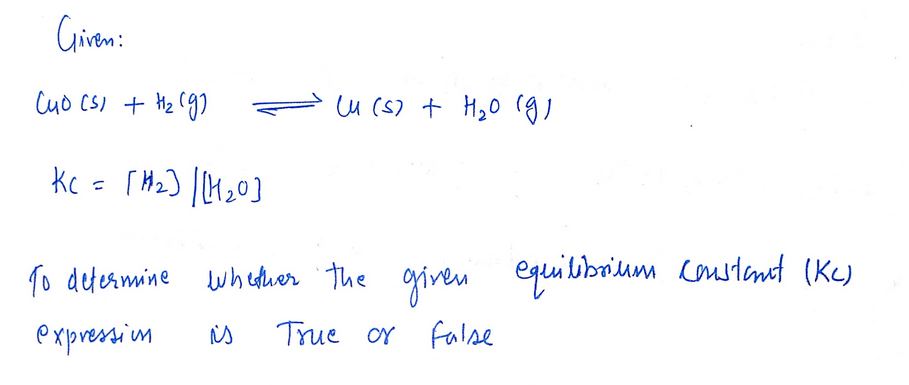Ionic Equilibrium
Chemical equilibrium and ionic equilibrium are two major concepts in chemistry. Ionic equilibrium deals with the equilibrium involved in an ionization process while chemical equilibrium deals with the equilibrium during a chemical change. Ionic equilibrium is established between the ions and unionized species in a system. Understanding the concept of ionic equilibrium is very important to answer the questions related to certain chemical reactions in chemistry.
Arrhenius Acid
Arrhenius acid act as a good electrolyte as it dissociates to its respective ions in the aqueous solutions. Keeping it similar to the general acid properties, Arrhenius acid also neutralizes bases and turns litmus paper into red.
Bronsted Lowry Base In Inorganic Chemistry
Bronsted-Lowry base in inorganic chemistry is any chemical substance that can accept a proton from the other chemical substance it is reacting with.
![**Text Transcription:**
The equilibrium constant expression for the reaction
CuO(s) + H₂(g) ⇌ Cu(s) + H₂O(g) is \( K_c = \frac{[\text{H}_2]}{[\text{H}_2\text{O}]} \).
**Explanation:**
This statement is followed by a "True or False" option, suggesting that it is a question asking whether the given equilibrium constant expression is correct for the reaction described.
**Description of the Reaction:**
- **CuO(s)**: Solid copper(II) oxide
- **H₂(g)**: Gaseous hydrogen
- **⇌**: Represents a reversible reaction reaching equilibrium
- **Cu(s)**: Solid copper
- **H₂O(g)**: Gaseous water
**Equilibrium Constant Explanation:**
For the given reaction, the equilibrium constant \( K_c \) is defined as the ratio of the concentrations of the products to the reactants. Since **CuO** and **Cu** are solids, their concentrations are not included in the equilibrium constant expression. Hence, the expression only includes the concentrations of gaseous components:
\[ K_c = \frac{\text{Concentration of \( \text{H}_2 \)}}{\text{Concentration of \( \text{H}_2O \)}} \]
In this context, the equation states \( K_c = \frac{[\text{H}_2]}{[\text{H}_2O]} \). The question then asks if this expression correctly represents the equilibrium scenario for this reaction.](/v2/_next/image?url=https%3A%2F%2Fcontent.bartleby.com%2Fqna-images%2Fquestion%2F2ceb2d65-29b4-49d4-9830-4ba06589987b%2F939b5730-9ac4-4941-aedc-ebcbd08a20f3%2F9nh0jof_processed.jpeg&w=3840&q=75)

Step by step
Solved in 2 steps with 2 images









